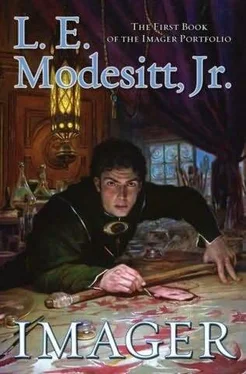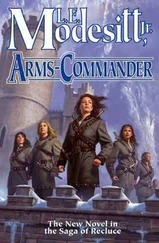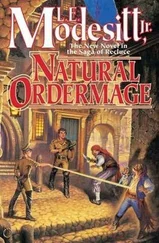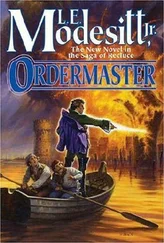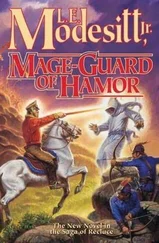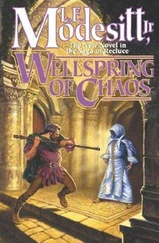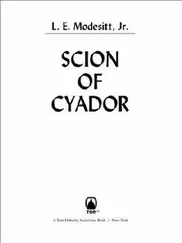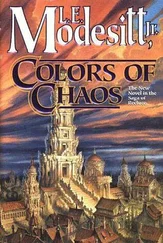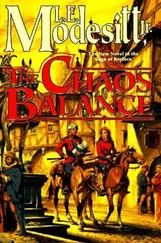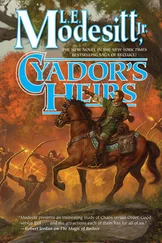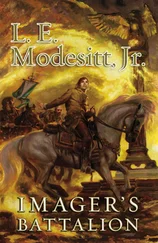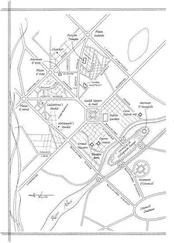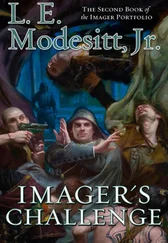L. Modesitt - Imager
Здесь есть возможность читать онлайн «L. Modesitt - Imager» весь текст электронной книги совершенно бесплатно (целиком полную версию без сокращений). В некоторых случаях можно слушать аудио, скачать через торрент в формате fb2 и присутствует краткое содержание. Жанр: Фэнтези, на английском языке. Описание произведения, (предисловие) а так же отзывы посетителей доступны на портале библиотеки ЛибКат.
- Название:Imager
- Автор:
- Жанр:
- Год:неизвестен
- ISBN:нет данных
- Рейтинг книги:4 / 5. Голосов: 1
-
Избранное:Добавить в избранное
- Отзывы:
-
Ваша оценка:
- 80
- 1
- 2
- 3
- 4
- 5
Imager: краткое содержание, описание и аннотация
Предлагаем к чтению аннотацию, описание, краткое содержание или предисловие (зависит от того, что написал сам автор книги «Imager»). Если вы не нашли необходимую информацию о книге — напишите в комментариях, мы постараемся отыскать её.
Imager — читать онлайн бесплатно полную книгу (весь текст) целиком
Ниже представлен текст книги, разбитый по страницам. Система сохранения места последней прочитанной страницы, позволяет с удобством читать онлайн бесплатно книгу «Imager», без необходимости каждый раз заново искать на чём Вы остановились. Поставьте закладку, и сможете в любой момент перейти на страницу, на которой закончили чтение.
Интервал:
Закладка:
The guild wings were closed and locked, and I entered the hall through the door between the east and the south wing, nodding at the guard in gray just inside. The four huge ceramic stoves-one for each wing, so to speak-kept my breath from steaming, but the cavernous space was cold enough that I wasn’t about to loosen my jacket.
The display works were hung by guild, and I walked to where mine had been placed, on the far left end of those submitted, one of three-out of nineteen-that didn’t have a portrait component. My painting-a study, really-depicted a chessboard seen from an angle. In addition to the pieces still in play, one could see two goblets of wine, one on each end of the board. The goblet at the end with the fewest pieces taken off the board was more than half full and held a dark red wine, a claret almost as black as the pieces beside it. On the white end of the board, the goblet held but a trace of white wine, a grisio, in my mind. The white imager had been laid on its side, signifying resignation, because in three moves, black would have won by checkmate.
As I stepped back, someone coughed, politely, and I turned.
A tall figure, wearing a solid dark green woolen coat and scuffed but sturdy brown boots, looked at me. His face was thin, accentuated by a wispy white goatee and high cheekbones. His eyes looked to be watery gray in the fading light that sifted through the high clerestory windows. Only half the brass wall lanterns had been lit, but the lamplighter was making his way around the outer walls of the hall. “Ah . . . you’d be Rhennthyl, young Caliostrus’s journeyman.”
“I’m Rhenn.” Young Caliostrus? He was older than my own father, if not by much.
“Good work there. It won’t win, though.”
“Why do you say that?” I had my own ideas, but I wanted to hear what the old artisan might offer-if he was an artisan at all.
“It’s understated. Symbolic, too, and the symbol is the one that no one wants to face.”
“Defeat? A setback? The favor of the Namer?” Like it or not, we all faced setbacks, sooner or later.
“No . . . being forced to resign in the face of superior ability. Don’t you know that’s the greatest fear of any artist? It’s not the fear of death, but the fear of being forced to admit someone else is better. The mark of the Namer is nothing compared to that.” The old artisan laughed. “You’ll see, young fellow. That you will.” Then he turned and walked away.
I couldn’t say that I disagreed with his words, but why had he even bothered to speak to me? And who was he?
A rotund man walked toward me, and it took a moment to recognize Master Estafen. I’d been introduced to him once before, and I’d seen him from a distance upon several occasions. I didn’t know any of his journeymen or apprentices, but he had several of each, and perhaps the most successful portrait studio in L’Excelsis, with the possible exception of Jacquerl. Although the judges were never revealed, I wondered if he might be one of them.
I inclined my head in respect. “Master Estafen.”
“Journeyman Rhennthyl. I saw old Grisarius talking to you.”
“Was that who it was?”
“Oh . . . Grisarius is just the name everyone calls him. Once, he was Emanus D’Arte, and considered one of the best portraiturists in L’Excelsis. But he did a seascape of a beach near Erlescue. Nothing wrong with that, so long as he didn’t sell it. He not only sold it, but he sold it to one of the master imagers, a Maitre D’Esprit, no less, and then told everyone.” Master Estafen shrugged. “After that, the guild had no choice. He was expelled. He had enough put by, I guess, to keep some rooms off the Boulevard D’Imagers. He comes every year to look at the works entered by the journeymen.”
“I thought he might be an artisan of some sort, but . . .”
“He was one of the greatest, but, like many who are great or close to greatness, he thought he was above the rules that govern a guild. Or a city.” He paused, then added, “Or a land.”
“Rules are necessary,” I admitted.
“I saw your work, Rhennthyl. It is good. You could be an outstanding portraiturist. Do not make life harder for yourself than it has to be. A good artist has enough difficulty becoming both great and secure in his position.”
“Yes, sir.” I nodded most politely.
With a warm smile whose depth was more than a little suspect to me, Master Estafen nodded and moved away.
In turn, I nodded to some of the other journeymen walking around. Be-lius was a landscape artist, but his studies were too gray. Morgad had a piece that wasn’t bad, but it was a portrait of an older man that suggested both corpulence and greed, and accurate as it was, I doubted it would be considered for an award. Aurelean, as always, strutted around and avoided mingling with anyone who toiled for one of the “lesser” masters, such as Caliostrus, even though his master, Kocteault, wasn’t always considered among the “greater.”
On the other hand, Elphens, who was by far the best-dressed and most stylish of all the journeymen, smiled broadly and insincerely and even spoke. “It’s good to see you, Rhenn. I enjoyed your study piece. It was most thought-provoking.”
“Thank you. Your gardens were most intriguing.” That was the best I could do.
Before long, Arasmes, the scrivener for the Portraiture Guild, stepped up before the middle of the displayed works. He didn’t shout or yell. He just waited until the handful of journeymen standing around stopped talking and looked in his direction. I remained well in the back, in the shadows, doubting my work would be considered, but hoping nonetheless.
“The judges have decided on the prizes for this year’s journeyman competition.” Arasmes took a long pause, then announced, “Second recognition-and the prize of two golds-goes to Aurelean D’Kocteault for his portrait of Mistress Karlana D’Kocteault. The judges would note that this study is a fine example of a traditional portrait.”
I had to agree. It was indeed an example of tradition. There wasn’t a single item of originality or true artistry anywhere, and I hadn’t seen an original brushstroke in the entire painting. It didn’t hurt that Master Kocteault was the previous guildmaster of the Portraiture Guild and that the portrait had been a flattering image of Kocteault’s elder daughter, who did not look anywhere near so fair as Aurelean had depicted her.
“First recognition goes to Elphens D’Rhenius, along with the prize of five golds. The judges would like to commend journeyman Elphens for his creative use of light in his study of the lower gardens on Council Hill.”
I managed not to snort. Creative use of light was appropriate-since the indirect light he’d depicted in his view of the gardens through a fall mist would have required the sun to be in three places-or that there be three suns in the sky. But Elphens was the journeyman for Master Rhenius D’Arte, considered by some as an equal of Estafen or Jacquerl.
For all that I had expected something like that, the walk back to Master Caliostrus’s in the chill and the dark was less than pleasant. The wind had picked up, and tiny flakes of ice pelted my exposed face, head, and neck. Many of the lanterns outside doors had blown out, and with the storm above, the rays of neither moon penetrated the clouds to offer light.
When I finally reached my small room, my feet were close to numb, and I could not feel the tip of my nose. Even as a journeyman, my quarters were on the street level, between the storerooms and the gallery, where the noises, the odors, and the cold were always the greatest. It took me two tries to slide the door bolt into place. My fingers were so cold that I had to fumble with the striker for several moments before I finally lit the small lamp on the chest.
Читать дальшеИнтервал:
Закладка:
Похожие книги на «Imager»
Представляем Вашему вниманию похожие книги на «Imager» списком для выбора. Мы отобрали схожую по названию и смыслу литературу в надежде предоставить читателям больше вариантов отыскать новые, интересные, ещё непрочитанные произведения.
Обсуждение, отзывы о книге «Imager» и просто собственные мнения читателей. Оставьте ваши комментарии, напишите, что Вы думаете о произведении, его смысле или главных героях. Укажите что конкретно понравилось, а что нет, и почему Вы так считаете.
